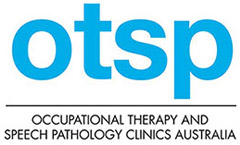When to check your child’s hearing
With universal screening at birth, permanent childhood hearing loss is usually picked up straight away.
Yet some childhood hearing losses don’t start until later. According to Hear and Say, which helps hearing-impaired children in Queensland, between nine and 12 in every 10,000 children are born with a moderate or greater hearing loss in both ears, and around another 23 will acquire a hearing impairment by the age of 17 through accident, illness or other causes. Communication development and behavioural skills are influenced by a child’s ability to hear. Hearing loss can also affect a child’s social interactions, emotional development and academic performance.
For this reason, children’s hearing should be tested regularly through childhood. Some common warning signs of hearing problems in babies and children are: speech/language delay or differences; saying “what?” or “huh?” often; not startling to very loud sounds; unable to detect where sounds are coming from; decreased alertness and poor concentration; asking to repeat things and turn sounds up; and difficulty hearing in one or both ears on the phone.

 Early Intervention and School Readiness
Early Intervention and School Readiness Early Intervention and School Readiness
Early Intervention and School Readiness